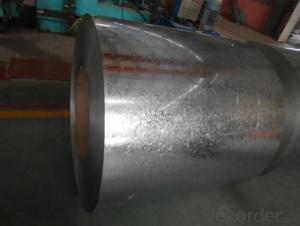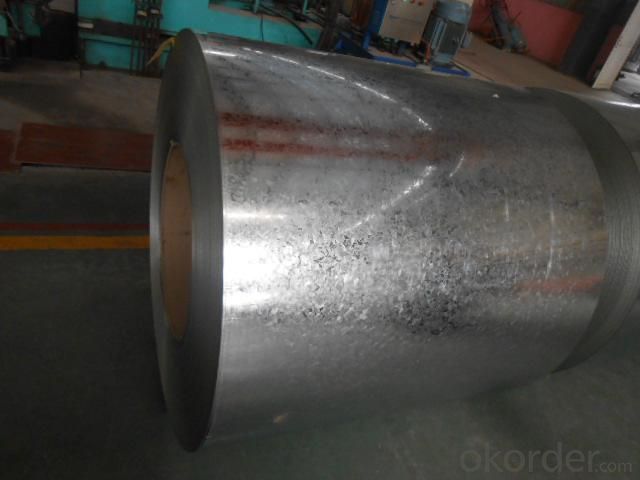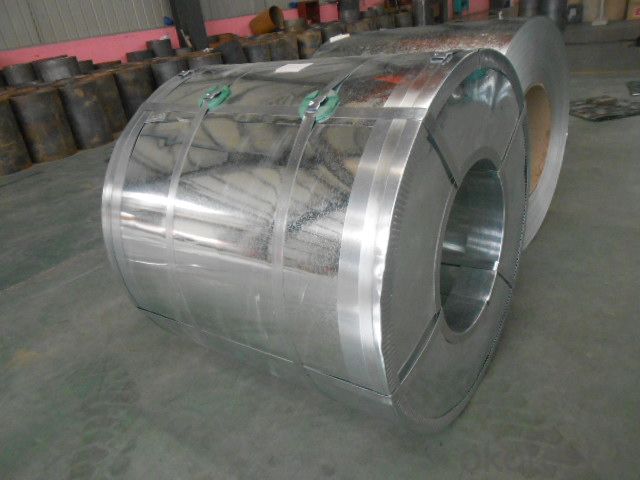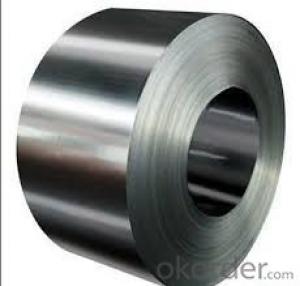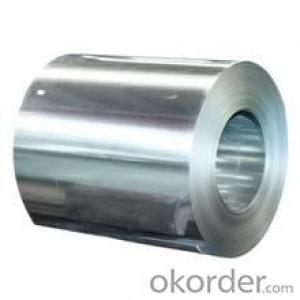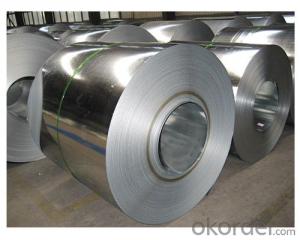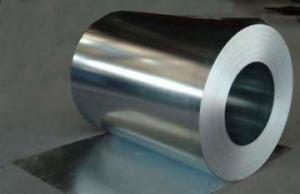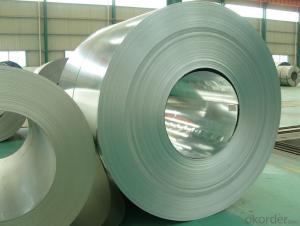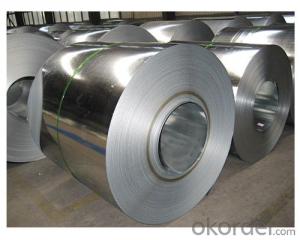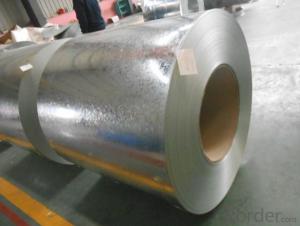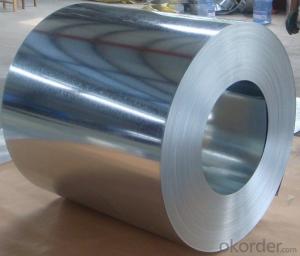Galvanized Steel Sheet Coils with Prime Quality Best Seller
- Loading Port:
- Shanghai
- Payment Terms:
- TT OR LC
- Min Order Qty:
- 100 m.t.
- Supply Capability:
- 10000 m.t./month
OKorder Service Pledge
OKorder Financial Service
You Might Also Like
1.Structure of Hot-Dip Galvanized Steel Sheet Description:
Hot-dip galvanized steel coils are available with a pure zinc coating through the hot-dip galvanizing process. It offers the economy, strength and formability of steel combined with the corrosion resistance of zinc. The hot-dip process is the process by which steel gets coated in layers of zinc to protect against rust.
2.Main Features of the Hot-Dip Galvanized Steel Sheet:
• Excellent process capability
• Smooth and flat surface
• Workability, durability
3. Hot-Dip Galvanized Steel Sheet Images
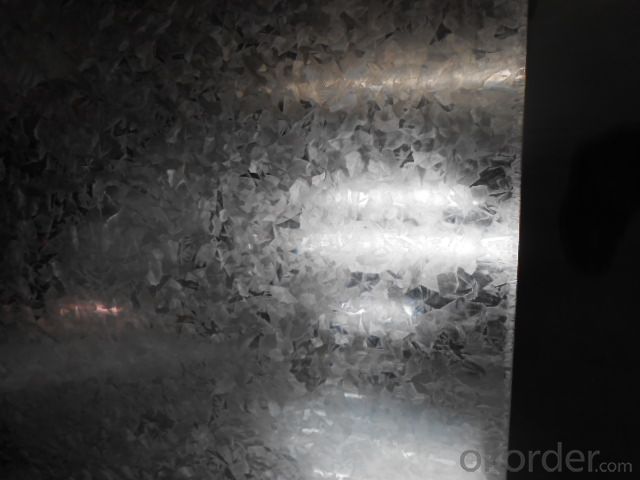
4.Hot-Dip Galvanized Steel Sheet Specification
Standard: ASTM, JIS,EN
Grade: CS, DX51D+Z,SGCC, SS 230~550,S220GD+Z~S550GD+Z, SGC340~SGC570
Thickness: 0.1mm~5mm
Width: max 2000mm
Surface structure: zero spangle, regular spangle or minimum spangle Surface treatment: Chromate treatment, Oiled/dry, skinpassed/non-skinpassed Packing: Standard seaworthy export package Coil weight:3-12 MT
Coil ID:508/610mm
5.FAQ of Hot-Dip Galvanized Steel Sheet
We have organized several common questions for our clients,may help you sincerely:
1.How about your company?
A world class manufacturer & supplier of castings forging in carbon steel and alloy steel,is one of the large-scale professional investment casting production bases in China,consisting of both casting foundry forging and machining factory. Annually more than 8000 tons Precision casting and forging parts are exported to markets in Europe,America and Japan. OEM casting and forging service available according to customer’s requirements.
2.How to guarantee the quality of the products?
We have established the international advanced quality management system,every link from raw material to final product we have strict quality test;We resolutely put an end to unqualified products flowing into the market. At the same time, we will provide necessary follow-up service assurance.
- Q: i always have eaten rolled oats and i have never tried steel cut oats. what are your opinions on them for oatmeal and which do u like better?
- Steel cut oats contain more nutrients because they have not been processed.
- Q: What are the safety precautions for handling steel coils?
- Some safety precautions for handling steel coils include wearing appropriate personal protective equipment (PPE) such as gloves, safety glasses, and steel-toed boots to protect against potential injuries. It is important to ensure proper lifting techniques are used, utilizing equipment like forklifts or overhead cranes when necessary. Coils should be stored and stacked securely to prevent them from falling or rolling. Regular inspections of coils and equipment should be conducted to identify any potential hazards or damages. Additionally, workers should be trained on safe handling procedures and be aware of the weight and dimensions of the coils they are handling.
- Q: How are steel coils used in the manufacturing of agricultural silos?
- Steel coils are used in the manufacturing of agricultural silos as they are rolled into large cylindrical shapes to form the outer structure of the silo. These coils provide strength, durability, and resistance to external elements, ensuring the silo can withstand the weight of the stored agricultural products and protect them from moisture and pests.
- Q: How are steel coils heat treated?
- Steel coils are typically heat treated by subjecting them to controlled heating and cooling processes. This involves heating the coils to a specific temperature, holding them at that temperature for a defined period, and then slowly cooling them. The heat treatment process helps to improve the mechanical properties of the steel, such as its strength and hardness, by altering its microstructure.
- Q: What are steel coils used for?
- Steel coils are used in a variety of industries for applications such as manufacturing of automobiles, construction materials, appliances, and packaging materials.
- Q: How are steel coils used in the production of metal roofing?
- Steel coils are used in the production of metal roofing by being fed through a series of machines that shape, cut, and coat the steel to create the final roofing product. The coils are uncoiled and flattened, then formed into the desired profile using roll forming machines. The formed sheets are then cut into specific lengths and coated with protective layers to enhance durability and corrosion resistance. These coated steel sheets are then packaged and shipped to construction sites for installation as metal roofing.
- Q: What are the different grades of steel used for coils?
- The different grades of steel used for coils vary depending on the specific requirements and applications. Some common grades include low-carbon steel (e.g., ASTM A36), medium-carbon steel (e.g., ASTM A516), high-strength low-alloy (HSLA) steel (e.g., ASTM A572), and stainless steel (e.g., 304 or 316). Each grade offers distinct properties such as strength, corrosion resistance, and formability, enabling manufacturers to choose the appropriate one based on their needs.
- Q: it seems like the hardness of Stainless steel, i saw 410c stainless stell, i saw 440c stainless steel, what does it means anyway?
- 440c Stainless
- Q: How are steel coils stored and transported?
- Steel coils are typically stored in warehouses or outdoor storage yards. They are usually stacked horizontally, one on top of the other, with wooden or steel supports placed between each coil to prevent damage. When it comes to transportation, steel coils are usually loaded onto flatbed trucks or shipping containers using cranes or forklifts. It is important to secure the coils properly during transportation to prevent any shifting or damage.
- Q: If rebar steel is welded together as opposed to 'tied' does it decrease the strength of the steel?
- The answer is it depends. I am not sure what steel alloy is used for rebar (there are hundreds of different steel alloys available commercially and different degrees of quality within any particular alloy and product form) but I assume it is a plain low carbon steel with a very simple heat treated condition. Welding does NOT increase the strength of steel, at least it does not in almost all cases (there are, of course, exceptions). A welded joint may be stronger than a tied joint but it depends on how the tied joint is tied and it depends on how the welded joint is welded. Crappy welds will not be as strong as well designed and executed tied joints. There are good reasons for different certifications for welders. With very little training and a little eye-hand coordination, anybody can learn to make farmer welds but sophisticated high quality welds in advanced steel alloys takes real skill, knowledge, and experience.
Send your message to us
Galvanized Steel Sheet Coils with Prime Quality Best Seller
- Loading Port:
- Shanghai
- Payment Terms:
- TT OR LC
- Min Order Qty:
- 100 m.t.
- Supply Capability:
- 10000 m.t./month
OKorder Service Pledge
OKorder Financial Service
Similar products
Hot products
Hot Searches
Related keywords
